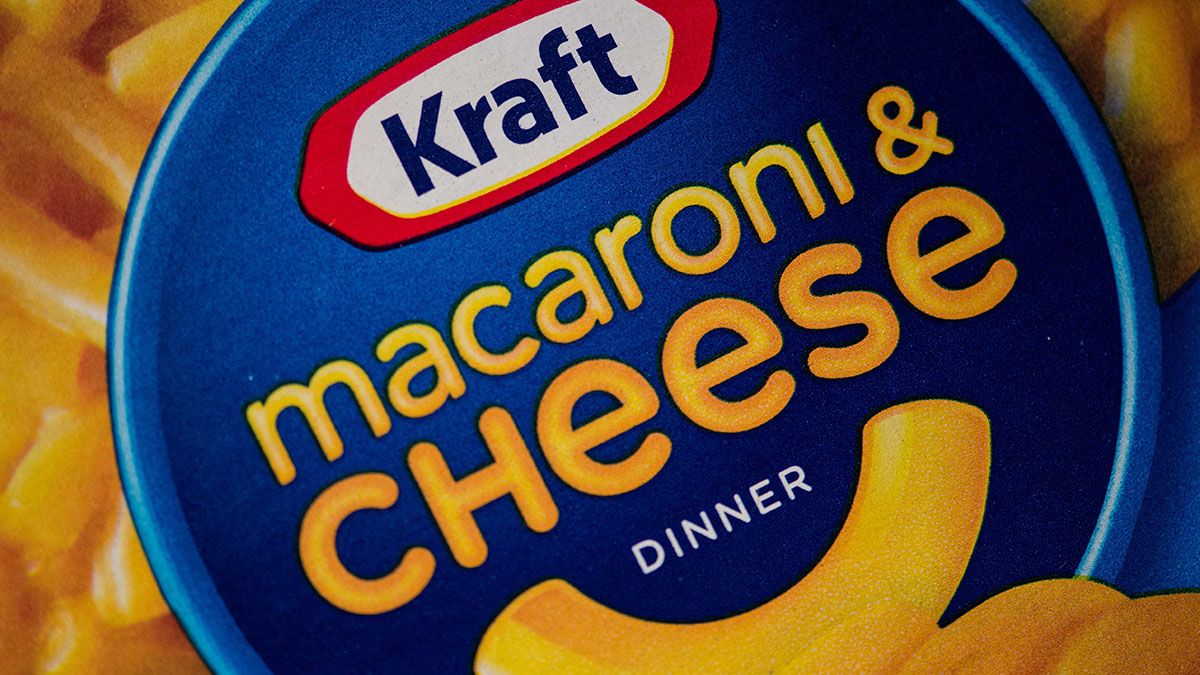On or just before Jan. 11, 2024, Facebook user Trent Rose shared a post that he claimed showed two photos of moldy dough on a mixer that's used to create the pasta for Kraft Macaroni and Cheese. According to posts on Rose's timeline, as of early January, he was employed by The Kraft Heinz Company at a plant in Champaign, Illinois, where the pictures were taken. Snopes received reader mail that asked about this rumor.
Chicago Tribune reported in 2020 that the Champaign facility was making "half of the Kraft Macaroni & Cheese sold in the U.S., as well as A-1 steak sauce, mayonnaise and salad dressings."
As of Jan. 22, Rose's original Facebook post was no longer publicly available and may have been deleted. It read as follows, according to multiple screenshots and videos that displayed it:
Yaw wanna know the truth about the pasta that is being produced at Kraft Heinz? We clean our mixers out every 19 days. What is presented in the pic is what our mixture of dough looks like after 5 days. The dough that doesn't get released into the dies gets stuck on our wall mixers and turns into mold from condensation. The molded dough is then mixed into the fresh dough.
Kraft Heinz is only worried about production and money. They hide everything when we get audited.
I'm only presenting this info because this isn't right. I have to cover my nose when I clean the mixers to make sure I don't inhale the mold.
"Thought yaw should know." In my Katt Williams voice.
Snopes reached out to Rose via Messenger on Jan. 22 to ask further questions, as well as through a publicly listed phone number that turned out to be disconnected. No response to questions sent via Messenger was received by the morning of the following day. This story will be updated should more details come to light.
Kraft Heinz Responds
On Jan. 22, Snopes contacted Kraft Heinz by email to ask questions about the post. A company spokesperson responded shortly thereafter, sending a statement that began, "The allegations made in social media are not true."
"The photo shared is of a mixer machine that was broken and not in use," the statement continued. "After the mixer was fixed and access was regained, it was thoroughly cleaned and purged of any old ingredients."
"Our equipment is always extensively cleaned and flushed before food production resumes. We follow the highest of standards for cleanliness and safety at our plants and participate in regular and rigorous inspections to ensure all protocols are followed."
More Details from Kraft Heinz
After receiving the first statement from Kraft Heinz, Snopes then sent further questions to the company, also via email, asking for confirmation regarding Rose's employment and if the pictures truly did show mold (and not something else) growing on the purportedly broken mixer. Details were also requested regarding how the mixers like the one in the photos are cleaned and how employees are instructed to document the completion of scheduled cleanings. Further, Snopes asked for documentation related to health inspection scores for the areas where such mixers are used.
In response, the spokesperson for Kraft Heinz sent the following:
Our kitchens and plants have many different food production machines, and each has specific and rigorous protocols for quality, cleaning and environmental monitoring. To ensure protocols are followed, we do regular internal quality checks, and we are also Global Food Safety Initiative (GFSI) certified, with regular audits by DNV, which is an expert third-party inspector. Those DNV inspections are usually unannounced, and therefore they see our operations as they are. DNV has never found any situations like those falsely alleged in social media. Finally, all food from our plants is tested before it leaves our facility to ensure we have no microbial contamination. Our employees take great pride in making high-quality food, and we proudly serve our food to our own families.
Snopes contacted DNV (Det Norske Veritas) – the quality assurance and risk assessment organization cited in the company's second statement – to request documentation regarding the Champaign plant's inspections. This story will be updated if we receive more details.
Viral on TikTok
TikTok users began to share Rose's post as early as Jan. 11. One of those videos was from a user named @kraftmoldlady, which was previously reported on by The Daily Dot. As of this writing, the clip had received nearly 1.5 million views. One caption in the video read, "Kraft is feeding you mold!"
The same clip was later virally shared on Facebook, meaning that Rose's original post had traveled from Facebook to TikTok, and then back to Facebook again.
Two other popular videos were also posted by another TikTok user who claimed, without evidence, that Rose had been "fired" after making his post – a claim that Snopes has yet to confirm.
Past Issues at Kraft Heinz Plant
Snopes reached out to Champaign-Urbana Public Health District staff in Illinois to ask if the organization ever inspects the Kraft Heinz plant in Champaign. In response, they said that they do not inspect food-manufacturing plants and then directed us to inspection data hosted on the Food and Drug Administration (FDA) website.
In 2010, an FDA inspection found that the plant in Champaign was "not constructed in such a manner as to prevent condensate from contaminating food-packaging materials." The inspection showed "VAI" for "voluntary action indicated." This issue did not appear in future inspections and was the only citation for the plant in any year listed on the FDA website.
In 2015, The Associated Press (AP) published details of a recall of 242,000 cases of Kraft Macaroni and Cheese due to some of the boxes containing small pieces of metal. A company spokesperson told AP at the time that the boxes of food were made at the plant in Champaign.
The most recent listed FDA inspection was in May 2023. The FDA website showed no citations or warning letters for the inspection.
